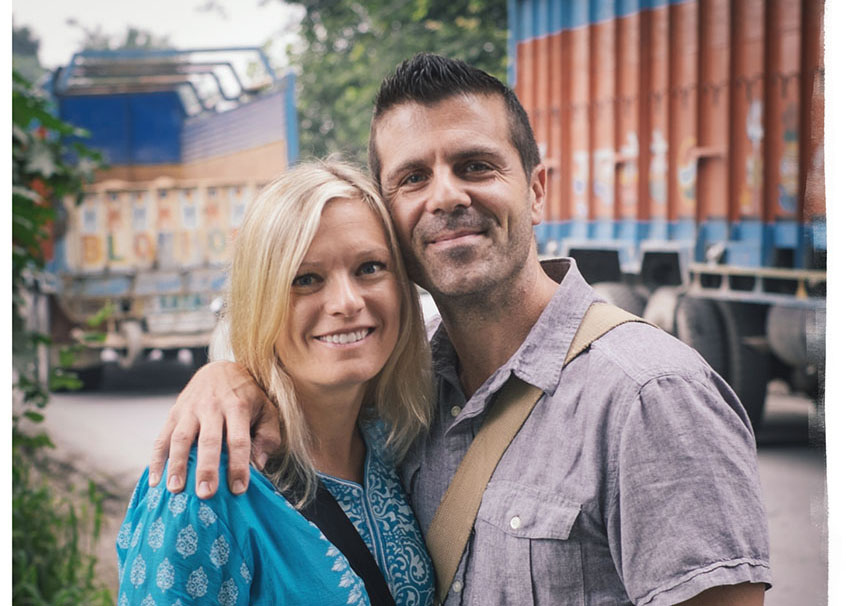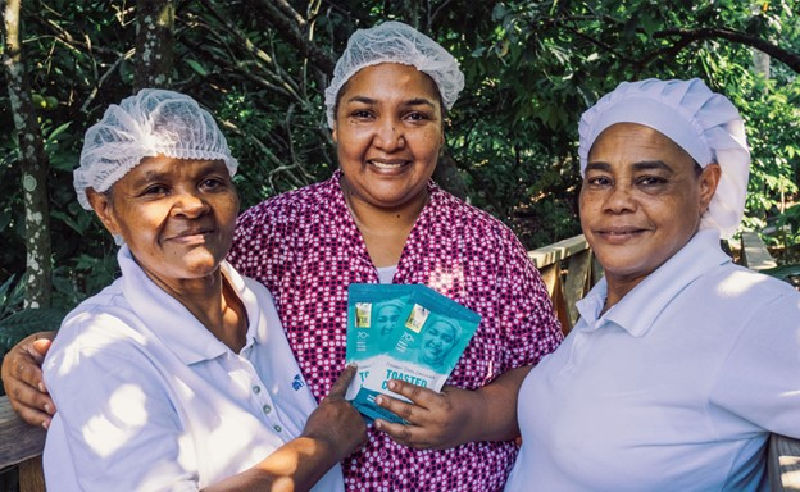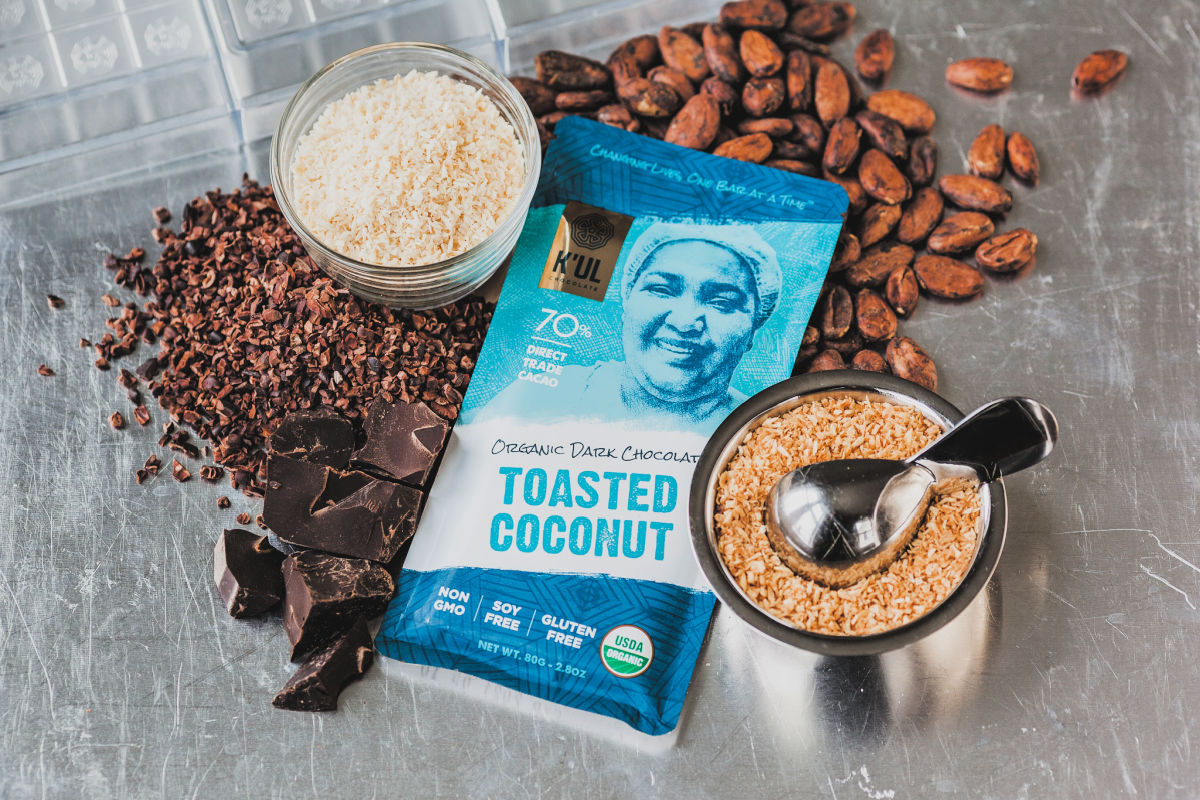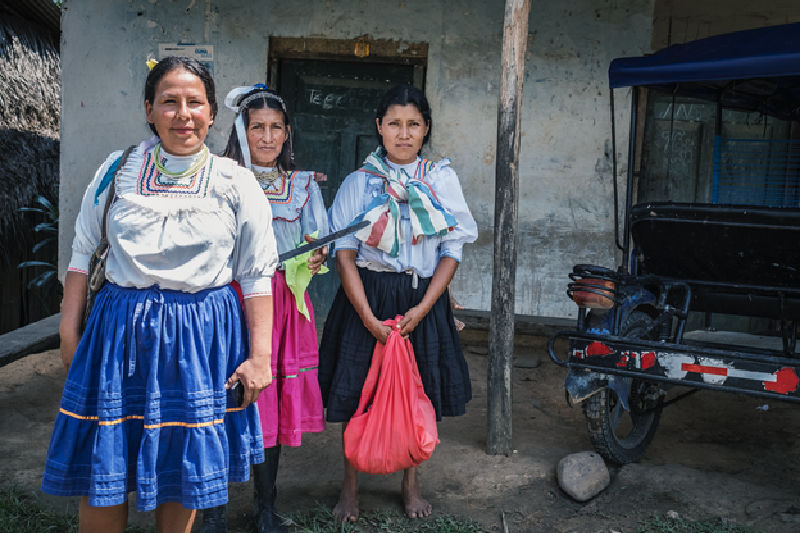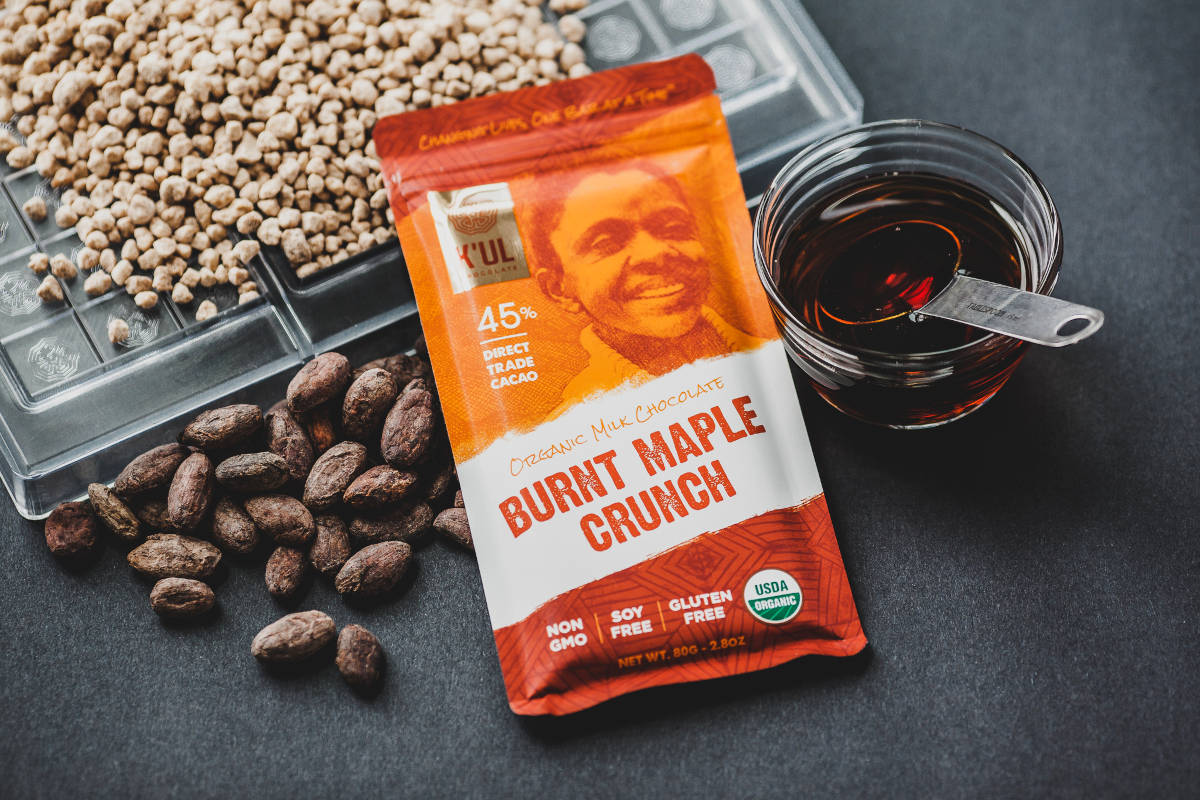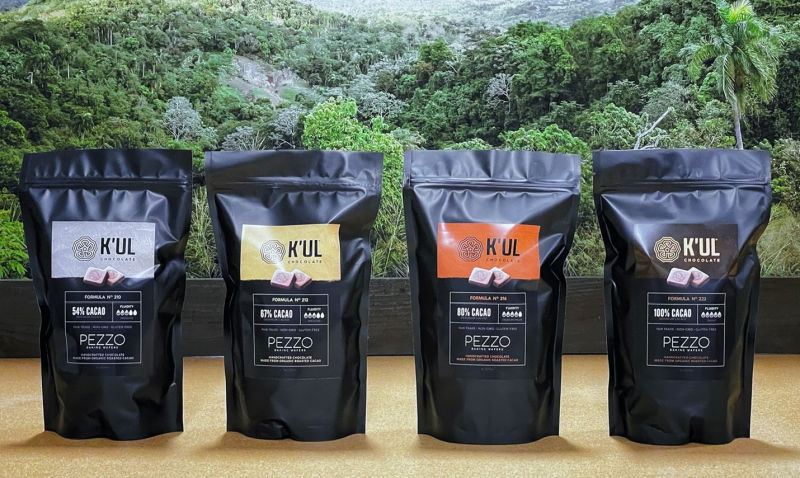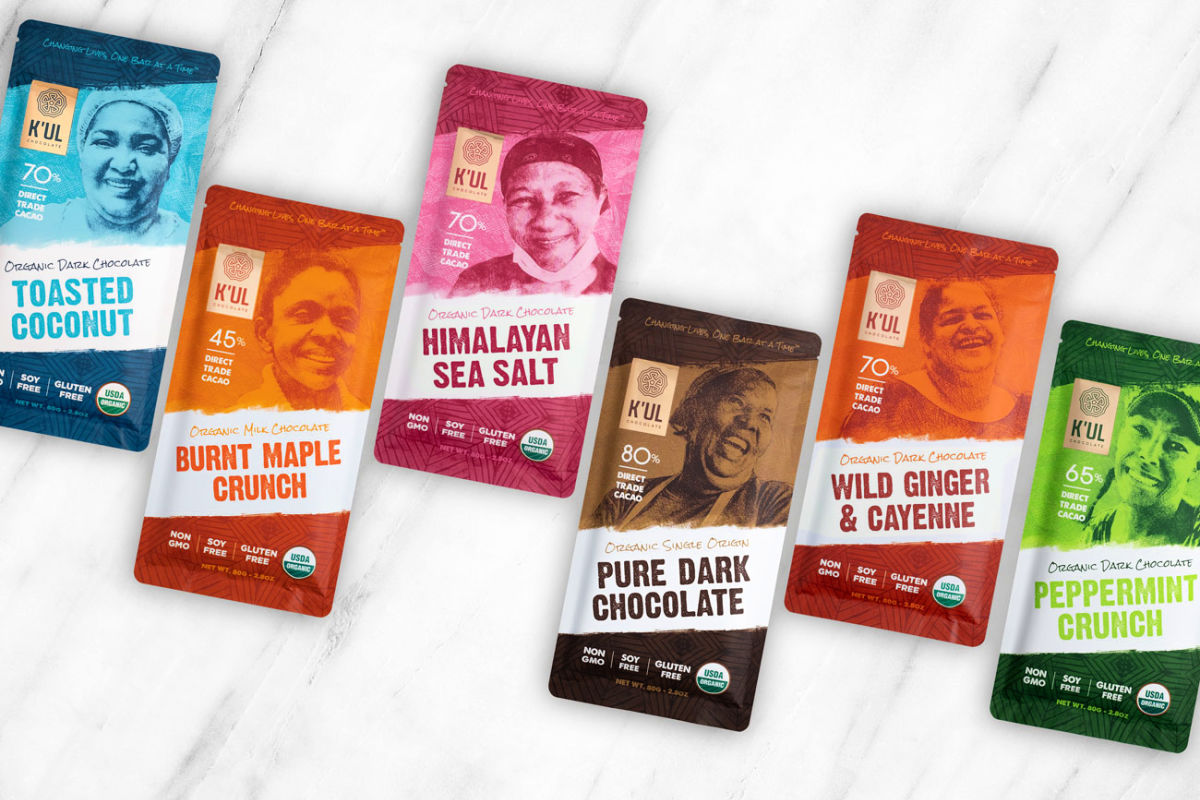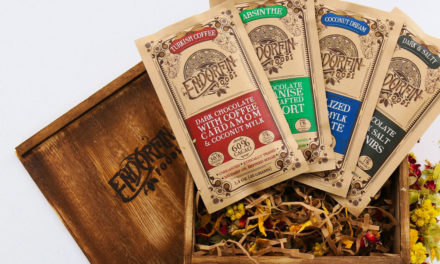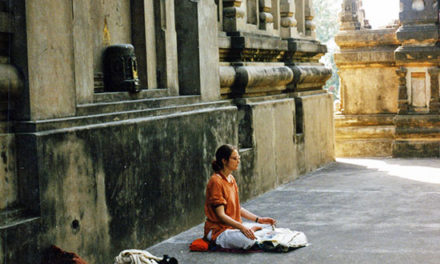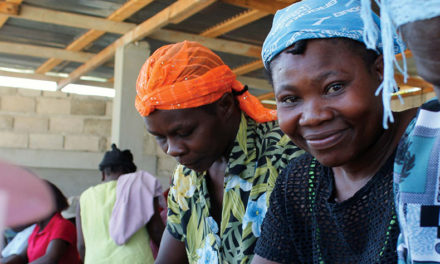IN Focus: K’ul Chocolate
by Eric Battersby
Here in early 2021 we’re revisiting an old friend, but with a new name and a new look to boot. Welcome to K’ul Chocolate, the social enterprise business of Paul Newman and his wife Ariana Lee-Newman (Ari if you will). We covered Paul and Ari back in 2017 when they were BIJA Chocolate, but a refining of their chocolate mission resulted in some important, positive changes that led to the re-branding.
2017, however, is really only a recent part of the timeline for K’ul, as their story actually began twenty years ago, in the jungles of Honduras, and in remote villages of Mexico and Guatemala. It’s as much a story of this happy, world-changing couple as it is about chocolate itself.
Ari’s Jungle Adventures
The first half of the story started with Ari in remote villages of Honduras, working on a medical mission to treat remote communities without running water or electricity. Ari witnessed people lining up before the sun even rose, traveling amazing distances just to see a physician or dentist, often for the very first time.
She found profound poverty, an urgent need for clean water and hygiene, and within herself, she found a humbling new perspective on life.
In a bright contrast, however, she also discovered a profound, heartfelt joy in these parts of the world, meeting people who, though by all western standards had little, were happier and more content than anyone else she’d ever known.
Instead of obsessing over what they didn’t have, they found happiness in daily tasks, living life connected and in a natural flow. With these revelations, Ari also found a deep desire within her to work with and support these developing communities.
Paul’s Own Trek
The second half of the K’UL story began with Paul documenting migrant workers in the United States and indigenous Maya in Guatemala. From an early age, Paul had a desire to travel the world and visit unknown places to try and understand the lives of people outside his own culture. During his college years he discovered documentary photography as a tool for raising awareness to social issues.
His camera became a passport to other cultures, giving him permission to ask questions… to explore the world visually… and to get closer to people all around the world. For his first project, he documented the lives of migrant workers in California and the incredible sacrifices they made, leaving their rural villages to seek better opportunities for their families.
That project introduced Paul to economics in a whole new light – the cost of human labor and the sacrifices people make for our food system. Paul then visited Guatemala and met indigenous Maya, who worked tirelessly in the highlands, cultivating crops for global food markets. These workers received minimal compensation for often difficult work, supplying coffee and cacao to the world market.
Much like Ari’s experience in Honduras, Paul’s time in Guatemala instilled in him a passion to create economic opportunities for communities in developing countries, particularly communities working in commodity crops.
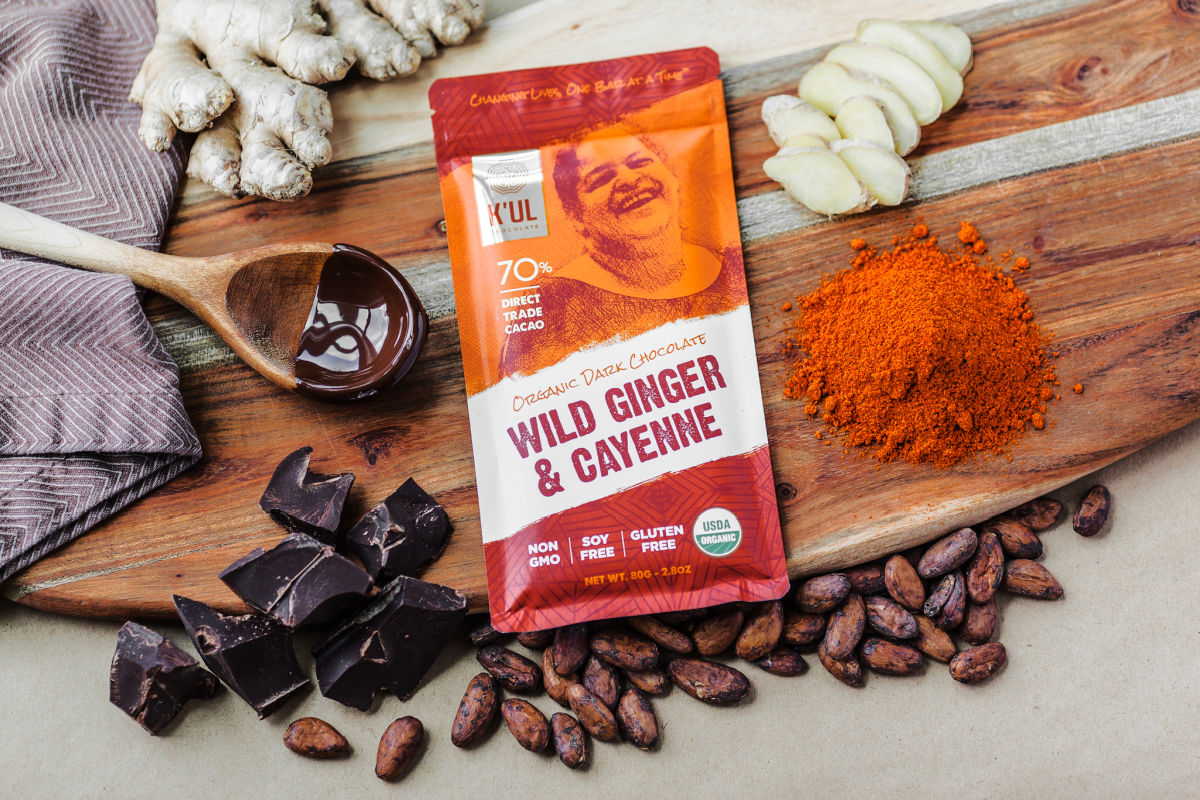
A Socially Conscious Union
This chocolate super couple first met while both working for a natural products company, and it didn’t take long to realize they’d found kindred spirits in each other, often discussing how ingredients were sourced, and how a brand might serve as a voice for those in need.
Paul adds, “This is why our consumers will find K’UL to be certified organic, made as simply as possible, without any allergens.”
Once their common travel experiences entered the conversation, Pau land Ari quickly knew they were meant to be.
“Together we have collectively explored over 40+ countries around the world. The purpose of our travel was initially meant to become exposed to unfamiliar traditions and experience other cultures. The outcome was entirely different.
We were touched by the countless people that welcomed us into their lives, and the greater understanding that we are all interconnected. We knew that this would forever change our lives on how we conducted ourselves and how we also interacted within our professional lives.
These experiences catalyzed the importance of community and had permanently shaped what we have become and the business we have built.”
K’UL Chocolates, the end result, truly grew out of a passion for people. Paul and Ari wanted to take their life experiences and create a social enterprise, a company that not only provided incredibly clean, organic products but also used the impact of sourcing ingredients to equalize worker treatment.
As Paul notes –
“The meaning of K’UL has a tremendous amount of influence on how we believe about the relationships between people and planet. K’UL means, “the energy and interconnectivity of all living things.” We felt that the new name embodied not only our beliefs, but also our intention as people and as a company.
There is tremendous power in understanding the human side of the supply chain since violations of human rights like child labor in the cacao industry are commonplace in many countries. There’s also a shared belief that if you invest in women, they will reinvest in their families and communities.
The intention to invest in women is critical for us, and in many of the countries we work, women are underrepresented. As a result, our sourcing model and social strategy were developed to carefully select women’s associations to partner with, starting with the Dominican Republic and Peru.
Our program works towards helping women’s cooperative receive organic certification which provides an economic opportunity that potentially doubles their income. K’UL supports the organic certification process, coordination and inspection, then gifts the certificate into the women’s cooperative and pay for the annual renewal so that they can increase their profitability by selling either cacao nibs or roasted beans on the global market if desired.”
The difficult truth is that how we cultivate our food greatly impacts the supply chain – specifically the human aspect of the supply chain. There’s always a human cost to food, and at K’ul Chocolate, thanks to Ari and Paul, you’ll never find that cost to be an afterthought.
K’UL Dominican Republic women’s association partner, Nelfi Garcia, General Manager
A Chocolate Adventure Begins…
When the time came to start their own chocolate company, it certainly appeared to be a daunting task. Paul and Ari had vast amounts of work experience already, in many different areas, but they had absolutely zero experience in making chocolate.
Ari actually earned her undergraduate degree in Political Science. She planned to go into international relations and human rights, but a twist of fate took her to Washington where she pursued an MBA. She feels lucky now that she can pursue both her love for human rights, as well as her belief that business can be a true force for good.
Fun fact – she actually worked at a chocolate factory right after graduation, with no idea that her life would eventually be completely transformed by the chocolate industry!
Paul’s worked as a creative director for companies ranging from lifestyle and action sports, to natural products. He’s worked as a documentary photographer for over 20 years, covering stories from street children of Romania (over the course of 15 years) to health care in rural India.
They both worked within the natural products industry collectively for over 25 years. Any practical experience in crafting chocolate, however, still sat firmly at zero.
“Although we are both people who appreciate good food and of course good chocolate, we didn’t have a clue on what it took to transform chocolate from this cacao seed, from a fruit, to what everyone was familiar with in a chocolate bar.
What we did have was a solid understanding that food and products can create positive social impacts. We’d seen it in various other experiences we’ve had in the past, and we both believed that products have a significant impact on educating consumers, helping them understand just how the cultivation of the food impacts the supply chain – specifically the human story behind food production, with an emphasis on cacao crop cultivation and post-harvest processing.
To create K’ul, we initially collaborated with a master Swiss chocolatier with over sixty years of experience. This partnership taught us the nuances of crafting chocolate, honoring the historical heritage of three chocolate-making generations.
Additionally, throughout our chocolate journey, we’ve been blessed with numerous friends who’ve acted as mentors. They’ve shared their own insights and experience, for which we’ve been forever grateful.”
A Next Level Chocolate Philosophy
Many craft chocolate makers put a very strong emphasis on sourcing. Paul and Ari take this to an elite level, one truly focused on the humanity of the entire chocolate process.
“We first hold the belief that chocolate should be made well, from ingredients that reflect our commitment to quality. We also have a resolute belief that chocolate is a powerful tool for change. Not only is it one of the most consumed foods in the world, but it also completes a circle in the supply chain that really affects human lives.
We often hear about people subjected to human rights violations in West African countries like Ghana and Côte d’Ivoire, but there is not as much conversation about sustainability for farmers, due to the lack of living wages they’re paid for their crops.
We feel that chocolate can help educate people about their food choices while understanding the human story behind chocolate.”
Paul expands on the big picture behind K’ul even further –
“We love the alchemy of chocolate, it’s mesmerizing. There are so many nuances that need to be nurtured that its quite complicated. It has taken us a tremendous amount of time and trial and error to understand how to make chocolate from a bean.
Making chocolate is akin to midwifery, your goal is to facilitate the process and help shape transformation. We also are deeply passionate about being able to create a product that can create positive change in people lives while empowering them economically… to meet people in all the countries we currently work in and will work with in the future.
The ability to learn about other cultures while sharing moments together, while sharing meals together. To be able to work with groups and understand their needs, not by projecting, but while listening so that we as a company can attempt to bring a balance into an industry where many cacao growers only make $2 a day or net 6% profit from the sale of a chocolate bar.”
Ari adds –
“We also love the connections we’ve made with the people we source our ingredients from, the people who make our equipment, and also with those we partner with in the community. Those partnerships are so important to us and really make up the fabric of our business.
We value every single person we work with. Overall, the craft chocolate industry is a small knit community of creative makers who support one another intimately.”
K’UL Peruvian Women’s Association Kelly Moscoso (left), President and Chairwoman of the Board of Directors for Oro Verde
Beans Make the Bar
K’ul sources all their beans from either the Dominican Republic, Peru, or Uganda.
Their business model is built around ethical sourcing. As Paul explains, it’s the foundation of everything they do –
“We have become one of a few direct trade, fair trade importers in the US that are also bean-to-bar chocolate makers. Our program focuses on providing more profit to the partners at origin. We discovered that by being organic, fair trade importers ourselves, we can bypass the predatory middle-men cacao brokers that take advantage of small growers and exploit them for profit.
Additionally, we also meet all our partners in-country with 1-2 visits per year to ensure they are following our strict quality control requirements and as importantly, ensure that no human rights violations are taking place.
This is one of the most important aspects of direct-trade partnerships, you get to see with your own eyes how the crops are grown, to see how the cacao is handled, to meet the growers and connect with the women to learn how to best support them and their communities.”
Unfortunately, COVID has impacted their ability to stay physically connected with their partners. Regardless, K’ul remains committed to those alliances, and they continue to make bi-annual purchases, maintaining and supporting these important relationships.
K’ul’s Chocolate
Obviously, the foundation for K’ul is of the outmost importance, both to Paul and Ari, and to all the ethical chocolate shopper who love what K’ul’s mission. It won’t amount to much, however, if the chocolate doesn’t taste as great as the goals behind it are grand.
Thankfully, K’ul does not disappoint, and as Ari explains, great ingredients set the stage for great chocolate –
“We are only 100% organic and believe that food should be free from chemical fertilizers and pesticides. We also believe that using minimal ingredients is how chocolate was meant to be made and appreciated. Our chocolate is made from 3 ingredients: cocoa beans, cane sugar, cocoa butter (then the inclusions) and we don’t use any emulsifiers such as soy lecithin in our bars.
All of our chocolate is made from organic, fair trade ingredients, cacao beans, cocoa butter and cane sugar. We source our inclusions the same way we do our cacao, building relationships with suppliers that match our values and are willing to commit to the same rigorous standards we’ve put in place for our cacao.
We also do everything we can to support local farmers by purchasing ingredients that can be sourced here in the U.S. What we believe is special about our brand is that we think it’s a little more like a social enterprise than a business. As we’ve mentioned, there’s this inherent belief we need to walk alongside our partners, being mindful of their needs while providing economic opportunities.
To this effect, we found that working with women’s associations can yield the greatest cultural and social benefit possible.”
K’ul currently offers eight original flavors, six of which you can pick up with this month’s chocolate offer, right here in the CC Chocolate Shop.
Paul notes that their “purest bar is a dark 80%… a single origin Peruvian bar that is incredibly smooth and tasty.”
Their 70% cacao offerings feature Sea Salt, Espresso and Cacao Nibs, Peppermint Crunch (made with peppermint from Seely farms in WA), Cayenne & Wild Ginger, and Toasted Coconut.
Their only non-vegan bars are the two option in their milk chocolate line – Burnt Maple Crunch and Sea Salt Almond. For the Burnt Maple Crunch bar, they use maple crunch from Vermont that is delicious, and for the Sea Salt Almond bar, they source almonds from a family farm in the USA.
Can you guess which of these eight choices clocks in as their best seller?
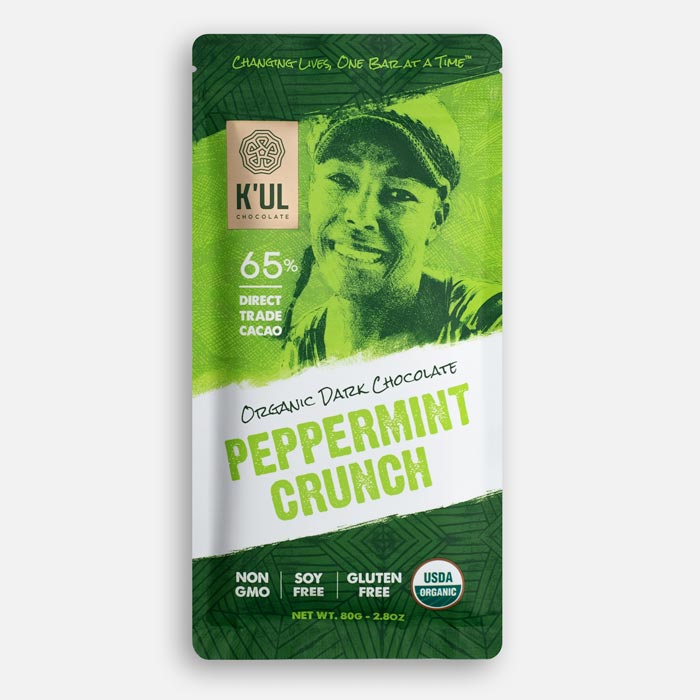
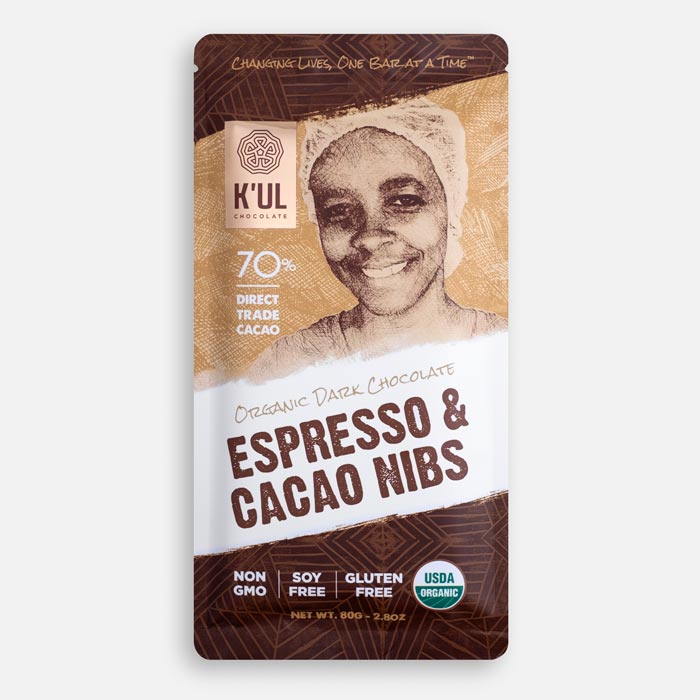
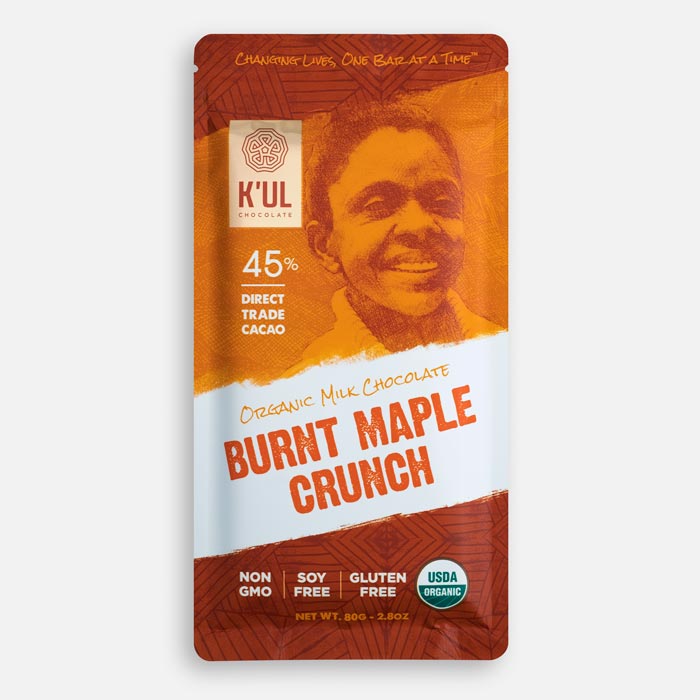
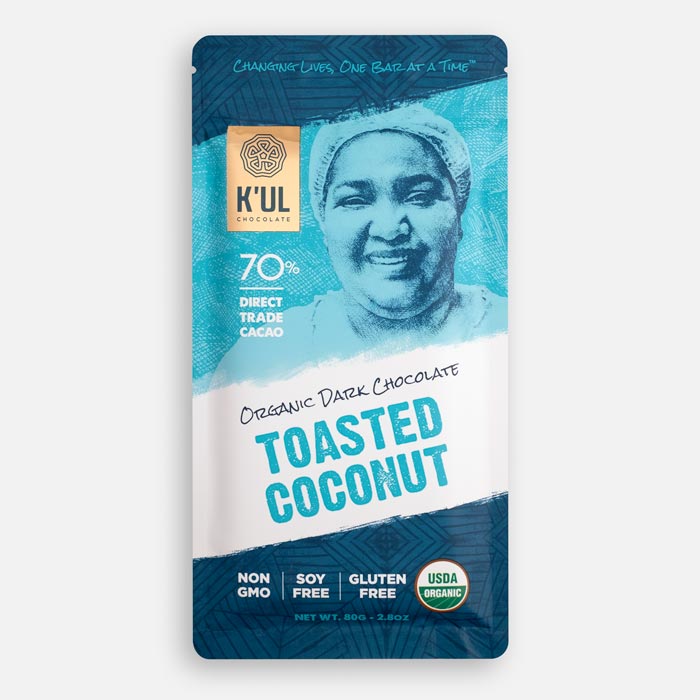
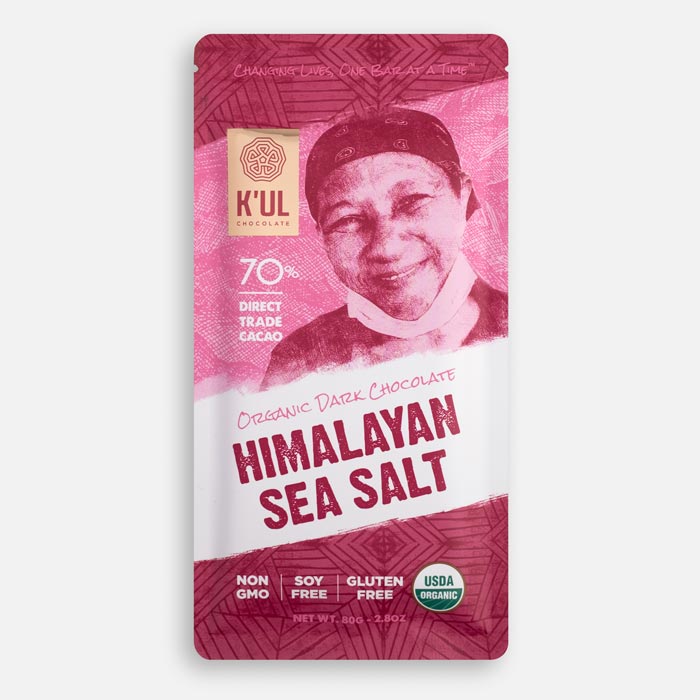
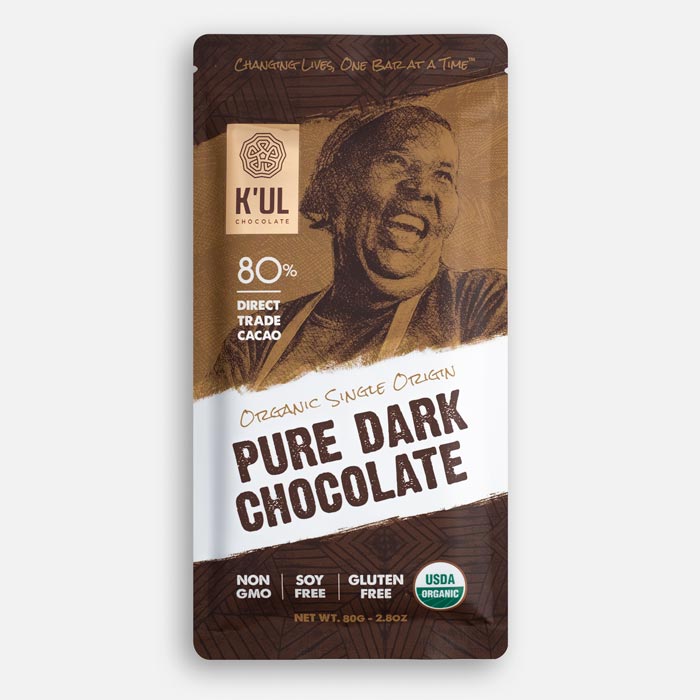
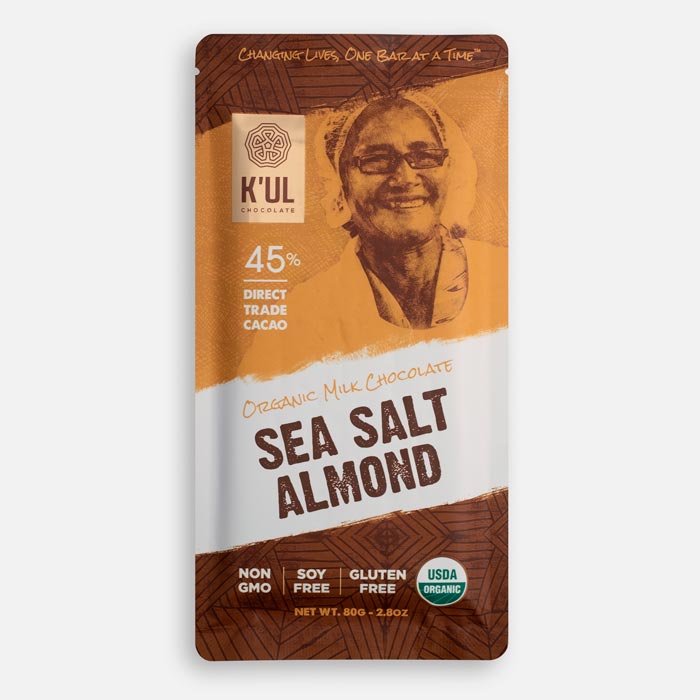
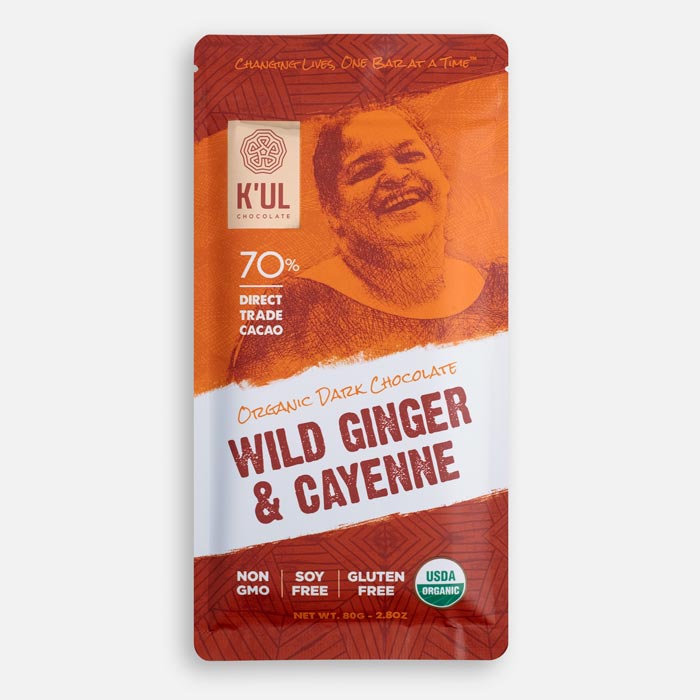
If you went with the Himalayan Sea Salt Bar, nice job. Paul says their Single Origin Pure Dark Chocolate bar registers a close second, and offers a few more details on the success of these two options –
“There are two reasons why these ones are hard to keep on the shelf. The sea salt bar has pink Himalayan crystal sea salt that has a very high mineral content and provides a salted bar experience that is unique. The Pure Dark is truly fantastic. We believe the balance between the sweet and savory is a particularly wonderful combination.”
A Future for Change
As for the road ahead, obviously a lot of things changed for people in 2020, but K’ul still plans to power ahead.
They have “an ambitious goal” to provide organic certification by 2025 to 1-2 women’s cooperatives throughout the Equatorial belt.
Paul adds –
“We also are facilitating growers to work together with the women’s cooperatives in their regions to create dynamic relationships by compressing the geographic footprint that strengthen all the stakeholder’s communities. In addition, we are developing community projects that will help groups we work with in areas of education and environmental ecology.”
They plan to launch some new bars as well, with a new collection of single-origin 30% milk and 70% dark chocolate bars using Uganda/Semuliki cacao in Fall 2021.
In addition to these new bars, they’re also launching a new Amazonas 100% cacao chocolate bar with just two ingredients.
“Our 100% is really something special and we hope that people will love it,” Ari says.
Their most exciting launch coming in 2021 is a new line of baking couverture chocolate called K’UL Pezzo’s, which is Italian for “piece”. This line will meet most of the needs for any decerning professional or home chef that is looking for high-quality, organic, fair trade chocolate. The Pezzo line will have 54% cacao, 67% cacao, 80% cacao and 100% cacao offerings.
Where to Connect with K’ul
Once chocolate festivals thankfully return to our world (how awesome will that day be???!), you can likely catch Paul and Ari at the Northwest Chocolate Festival in Seattle. It’s relatively close to K’ul, and since it’s one of the top tier festivals in the country, they count themselves lucky that it’s so easy to attend geographically.
The K’ul Chocolate Six Bar Collection (available here through 3/9/21)
As for the bars, the best place you can purchase them through March 11th 2021 is right here at Chocolate Connoisseur, in the Six Bar Collection. Beyond that, however, for now you’ll mostly purchase K’ul online, unless you live in the Bellingham area. K’ul’s website is best, but you can also find their bars on Amazon and at other smaller sites as well.
We wish Ari and Paul the best as they push K’ul forward to even greater heights, and we most certainly can’t wait to taste what’s next. We need as many people in the craft chocolate world like this wonderful couple as possible, so if you’re newer to chocolate and reading this, take note – Paul and Ari do things right. If you want to start your own chocolate company, modeling it after the principles K’ul follows should certainly set you in the right direction!
For more on Paul, Ari, and K’ul, click here to visit the K’ul Chocolate website.
And click the links below to connect with them on social media.
+ PHOTOS BY K’UL CHOCOLATE
(unless otherwise noted)

